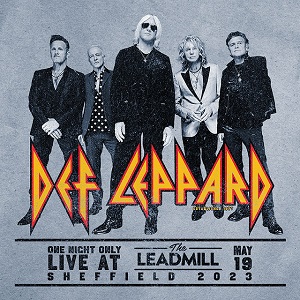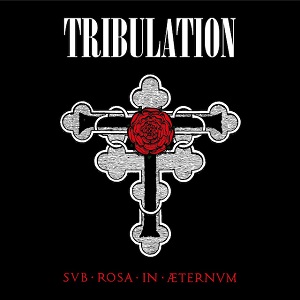SAXON - Exclusive Excerpt From Biff Byford Autobiography Available
February 22, 2007, 17 years ago
As previously reported, SAXON - Never Surrender (Or Nearly Good Looking) is a new autobiography by frontman Biff Byford and John Tucker, and it will be published via I.P. Publishing in April 2007. Distribution in the UK will be handled by Gazelle Book Services Limited.
An excerpt dubbed Part One - Hungry Years - Chapter reads as follows:
"... I was a child of the Fifties: Peter Rodney Byford, the only child of Earnest Charles – two good traditionalEnglish names there – and Irene Byford. Am I a typical Capricorn? Ask Lemmy. If he is, then I am.
I have absolutely no idea how my mother and father met. He probably seduced her, or maybe it was the
other way round! They’d both been married before and I think maybe my mum’s husband died, although I can’t
remember exact details now. I never knew any of my grandparents, as they’d died before I was born. I saw pictures
of them of course, the usual sort of 1900s photographs, all faded and sepia, but I must have been quite a late child
for my parents. They’d already had children before; I have a half-sister who was my father’s daughter, Enid, and a
half-brother who was my mum’s son called Michael. Me and Michael lived together with my mum and dad but
Enid had already moved out years ago. I think they’re all still alive – my sister Enid definitely is – and I presume
Michael’s alive as well. But he left fairly early on as well, from what I can recall. I don’t think my dad was very
nice to him so he left.
We lived in a big stone weaver’s house, as they called them back then. There was an attic and that’s where
I used to play music and generally get it together in the Sixties, which is when I started to become aware of music.
It was all THE BEATLES and pop music and stuff by that time as I was too young to be into the really early rock ‘n’
roll thing. My brother was a Teddy Boy but I was too young to be into that really; back in the Fifties and Sixties
you really didn’t start to be allowed to do anything on your own till you were sixteen or seventeen. That’s kind of
when you started to become a teenager then, at sixteen or seventeen, not twelve or thirteen as it is now.
I only have good memories of my early childhood really. Mostly playing on my own, with a model railway
and soldiers and things; the sort of things you had back then. But mostly good times – up until my mother died
when things obviously took a bit of a dive. It affected me quite badly, and I think in the longer term one of the
effects is that I like to have a family around me; I like to have a stable relationship and although I haven’t had many
of them, to be honest; it’s something I have always striven for. I think I always want security; I think that’s one of
the legacies of my mother dying. Virtually all of my friends on the road have actually been women. I have spent
half my life touring and I can probably count on one hand the number of male friends that I’ve made over the years.
They’re almost all women. If someone asked me, ‘who or what is the greatest love of your life?’, the answer would
probably be music and women, which may sound a bit flippant but I have spent most of my life with those two.
When we were touring, as I’ve said, I often spent very little time with the band; most of it was spent with girls,
actually. And given the choice, wouldn’t you? So maybe that’s connected in some way to my mother’s death too,
some kind of over-compensation for losing my mother at an early age. I think it did make me a survivor though. I
have always been able to organize myself, and other people too. But that said, the sad parts of life, losing people
who are close to you, is something I find very hard.
This was all still the post-war period, although I can’t remember rationing and conscription to the army and
stuff like that, although it was still going on at that time. In fact I can’t remember much of the Fifties at all. What I
can remember is living in a very rural place with the steam trains running through the valley not far from the house and very nostalgic and romantic images of people working on hay bales in the fields, and my uncle’s car. It was a Vauxhall Wyvern, and I thought it was the most fantastic car I’d ever seen in my life. It was based on the lines of the classic American car but smaller. And I remember staying with my auntie and uncle later on when my father
had his arm torn off; my cousin was about the same age as me so we were absolute rogues together. These are the
good memories really, and although there were some tragic times there were good times too.
I also remember we used to holiday in Teignmouth in Devon, when I was young, with my mum and dad,
and they used to do a mill trip. It was absolutely fantastic. The whole mill had their two weeks’ holidays and we
used to go to the train station where there were two huge steam trains with thousands of carriages and we’d jump
on and they’d give us a bag with an orange and an apple and a bag of crisps and we’d all sit in our compartment
and next stop, Devon. Back in the Fifties, don’t forget, going from Yorkshire to Devon was almost like going to the
Moon. And then we’d go to our digs. I had such great memories, the red cliffs, there was a model railway
exhibition on the front, I think... I just remember so many happy, sunny summer days with my brother on the
beach. That was our big holiday place, Devon.
All-in-all, I would say I had a pretty happy childhood, until my mother died. I must have been about eleven
when it happened. It was basically a thrombosis, and it was all so sudden. I was talking to her one day and she was
dead the next: it really was as quick as that. And that totally wrecked me for quite a long time. My family
considered me to be in too much of a state to go to the funeral so I actually stayed with my auntie and uncle for
quite a long time. Back in those days, no-one understood grief, and there was no such thing as counseling –
certainly not in working-class Yorkshire. You were just meant to get on with it. No-one seemed to realize how I
felt, or what I was going through. I can remember crying every night for a month, maybe more, and it still bothers
me that I wasn’t allowed to go to her funeral; it’s a major bone of contention to this day really.
Afterwards I was sent to live with my auntie and uncle for a while and they weren’t particularly sympathetic. It was all very ‘stiff upper lip’ and keeping up appearances, and you certainly weren’t allowed to be seen to cry. I was just a kid, and I was struggling. They were nice enough people; they were my uncle – my father’s brother – and auntie, so obviously to me they were nice people; they were family after all. But they weren’t very loving, a tendency they shared with my father (so this must have been something from my father’s side of the family, from my grandfather on my father’s side). They just weren’t a family to show much affection. With my children, we’re all very much sort of ‘love you’ and kissing and hugging. This is something I never had from my father when I was a kid, but I don’t think boys should be treated any differently from girls when they’re young; I think they should be shown as much love and affection in that way as you’d show to girls, if you see what I mean ..."











